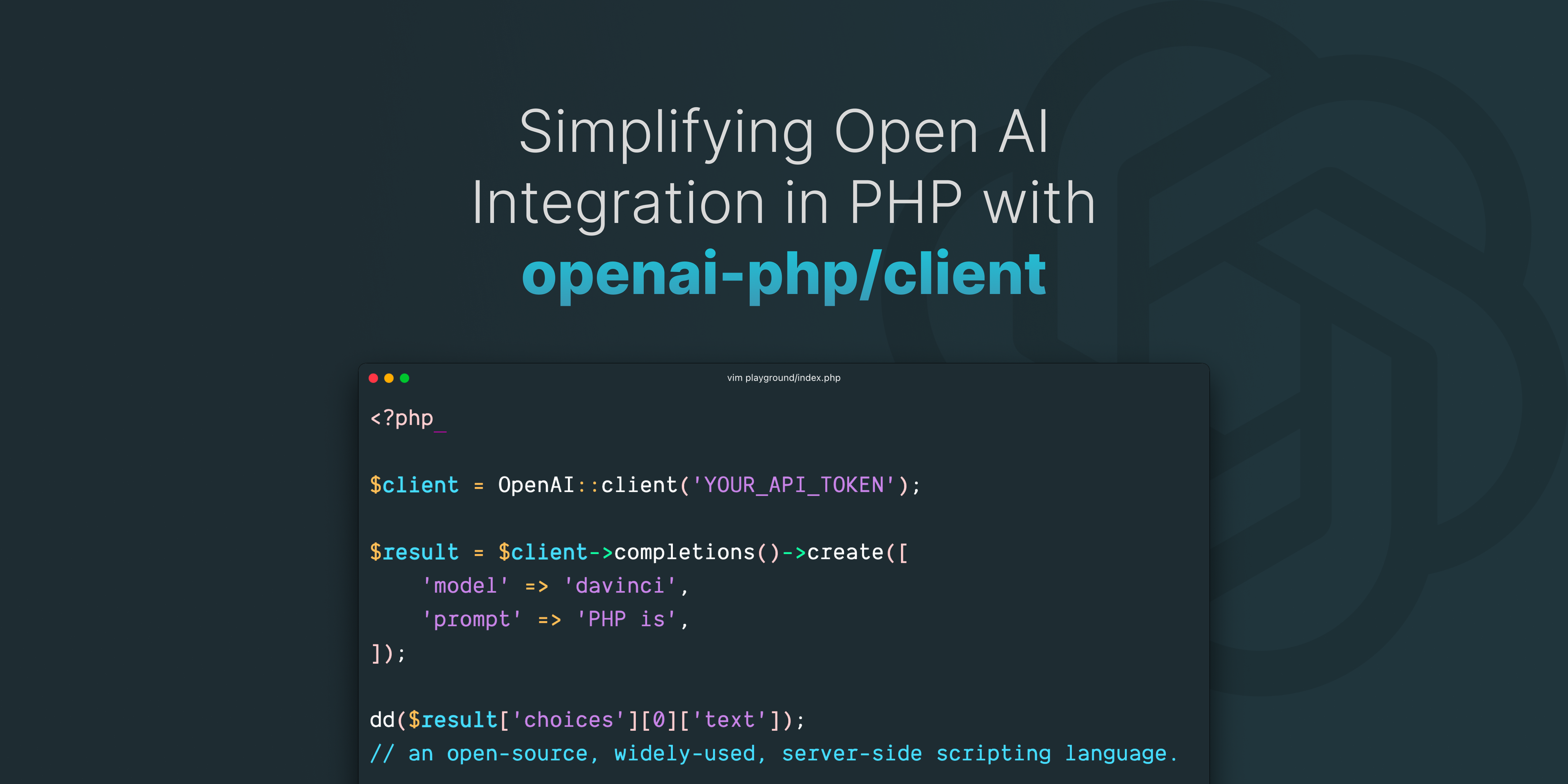

In an era where artificial intelligence plays a pivotal role in various technological advancements, OpenAI stands at the forefront, offering cutting-edge AI models and tools. For developers harnessing the power of AI within PHP applications, the OpenAI PHP Client has emerged as a significant boon, simplifying the integration of OpenAI's capabilities seamlessly into PHP projects.
The OpenAI PHP Client serves as a bridge between PHP and OpenAI's powerful API, allowing developers to leverage a spectrum of AI models, from language generation to text completion and more, in a straightforward and efficient manner. Let’s explore how this client works and how it can be integrated into PHP applications.
The OpenAI PHP Client streamlines the integration process by offering a clear API interface to interact with OpenAI's services. To begin, the first step is to install the client using Composer, the de facto dependency manager for PHP:
1composer require openai-php/clientOnce installed, the client can be instantiated within PHP code, enabling access to various OpenAI services by providing the necessary API key:
1use OpenAI\Api\OpenAIApi;2 3$apiKey = 'YOUR_API_KEY'; // Replace with your actual OpenAI API key4$openai = new OpenAIApi($apiKey);The OpenAI PHP Client supports a range of functionalities, allowing developers to leverage powerful AI models effortlessly. Here's a glimpse into how some of these services can be used:
Generating text using AI models like GPT-3 can be achieved with minimal code using the OpenAI PHP Client. For instance, generating text based on a prompt:
1$response = $openai->createCompletion([2 'model' => 'text-davinci-003', // Model name - e.g., Davinci, Codex, etc.3 'prompt' => 'Once upon a time',4 'max_tokens' => 50 // Maximum length of the generated text5]);Classifying text into specific categories using AI models is simplified:
1$response = $openai->createClassification([2 'model' => 'text-davinci-003', // Model name3 'examples' => [4 ['label' => 'Positive', 'text' => 'I love this product'],5 ['label' => 'Negative', 'text' => 'This product is terrible']6 ],7 'query' => 'A review of the product'8]);While integrating the OpenAI PHP Client, it's crucial to handle API keys securely. Storing keys in environment variables or utilizing secure key management practices is highly recommended to prevent unauthorized access.
The OpenAI PHP Client empowers PHP developers to harness the potential of state-of-the-art AI models seamlessly within their applications. By providing a clean and straightforward interface, it simplifies the process of interacting with OpenAI's powerful services, enabling a wide array of AI-driven functionalities in PHP projects.
As AI continues to evolve and permeate various industries, the OpenAI PHP Client stands as a valuable tool for developers seeking to incorporate AI capabilities into their PHP applications.
The GitHub repository for the OpenAI PHP Client serves as a comprehensive resource, offering documentation, code samples, and community support, ensuring a smooth integration process for developers.
The synergy between PHP and AI has never been more accessible, thanks to the OpenAI PHP Client, ushering in a new era of AI-driven PHP applications.
Disclaimer: The code snippets provided are illustrative and might require adjustments based on specific use cases and the evolution of the OpenAI PHP Client.
For the latest updates and detailed documentation, always refer to the official OpenAI PHP Client GitHub repository.
If you enjoyed this article, please consider supporting our work for as low as $5 / month.
Sponsor
Written by
Writing and maintaining @LaravelMagazine. Host of "The Laravel Magazine Podcast". Pronouns: vi/vim.
Get latest news, tutorials, community articles and podcast episodes delivered to your inbox.